| We notice that the kale is thriving amidst the cover crop, which we are reducing only as something goes to seed. (Chickweed, for instance.) | On October 14 Tessa wrote a blog with some pictures of the over-wintering beds she planted for us. She'd envisioned a "river of broccoli", interspersed with colorful kales and mustards and lettuces. The winter beds were covered with a loose cloche, but nonetheless an early hard freeze did in the broccoli and lettuce. Before the holidays I scattered garlic bulbules in the bare spaces, but mostly we just had to wait for the early spring to see what remained. Recently we took the cloche off. Kales and mustards and arugula and bok choi had survived, along with garlic blades and a good cover crop of "weeds". We've eaten several community meals that included these fresh greens already. Patricia and I transplanted lettuces and cilantro from the hoop houses, with the addition of some spinach starts and spinach seeds. They all look very tiny right now, but experience tells us that after long slow pokey changes, suddenly they become lush and luscious. Another intern project from last year received lettuce starts at the same time. The "Ugo", named after its inventor, will soon offer salad to anyone who comes by the dining room doors. |
|
1 Comment
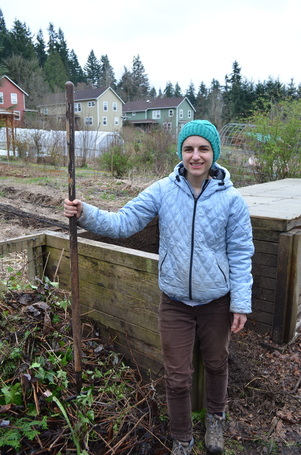 I've been eying the compost pile every time I'm in the garden or in the parking lot next to the common house. I swear it has been eying me, too. That pile has been tugging on me, like a child that won't stop nagging an adult until he is given the attention that he craves. Sometimes I walk the extra distance just to cross paths, to check in with it. To take the opportunity to inhale, in one breath, the billions of bacteria ruminating in those gigantic mounds. Because how often does one have an opportunity like that? I've been wanting to write about compost, yet before I could, I felt I needed to go back in time, to the beginning. When I meet someone, one of the first questions I ask them is, “where are you from?” Even though I've grown quite close to compost, allowing its shredded bits to haphazardly coat my face and neck, it occurred to me that I hadn't asked that question of it. So, feeling sheepish, I did some research on its origins. I discovered that the word compost is Latin, and it means “something put together.” 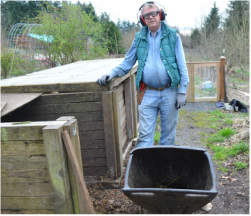 Upon learning this fact, I thought of the t-shirt that every garden volunteer wears and signs the first time they compost. The front of it says, “Compost happens”--which is a joke because compost doesn't just happen. With great care, Songaians roll those heavy three or four food bins down from the common house to the garden, and bend, sometimes for a half hour, sometimes for two hours, over that rumbling wood chipper and repeatedly toss shovelfuls of food waste down its hungry throat. The process is messy. It is loud. It is not for the faint of heart (I don't recommend eating before this event). Compost is without a doubt, something put together. Recently, I heard Patricia talk about composting as a rite of passage at Songaia. I loved that because I can't think of my Songaia experience without thinking of composting. Those rich, gaseous piles have taken on a whole new association for me. I can't think of compost without seeing Doug in my head, clenching a fistful of the stuff and describing, with glistening eyes, the look and texture of ideal compost. I remember a particular day when we raked leaves together. Doug told me how much he loved raking leaves, comparing them to gold in terms of their value to the gardens. That moment has stayed with me because of his sincerity and the truth of the statement, which I have come to experience for myself. 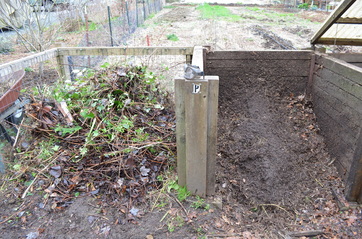 I've been wanting to write about compost because I'll admit it, I'm smitten with compost. Forget gold jewelry; I'm more interested in the everlasting promises of black gold hummus. What substance could have more potential to positively impact, even transform the soil at our feet. I revel in the simplicity and complexity of compost. It is about balance, and unlike many things in life, it comes with a formula. Yet it couldn't be more nuanced with its universe full of microbial secrets. I can't even begin to fathom the number and different types of bacteria pulsing inside those piles. Compost runs on its own time, at its own chosen speed. Don't turn it before it's had adequate time to itself. It will only look at you with dark speckled eyes, as if saying, “Shh, let me be, let me sleep. I'll let you know when I'm ready.” And you will be patient, oh yes, because like anyone who has lived for many seasons at Songaia, you know what the rewards will be like. 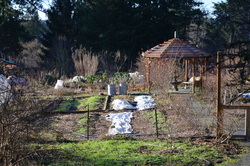 The next time I find myself in the parking lot, I will put any of my shyness aside. I will greet that compost pile with all the respect, admiration, and exultation that it deserves. I will stoke it with my pitchfork and smile. I've finally written about compost, but even still, I welcome it to keep on tugging on me. |
AuthorGarden bloggers are community members, volunteers and interns at Songaia. Archives
July 2024
Categories |

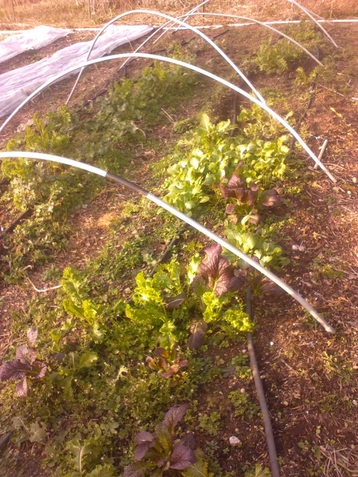
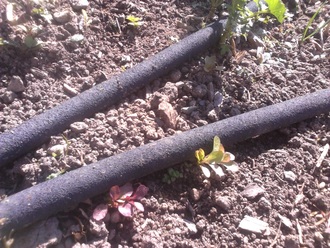
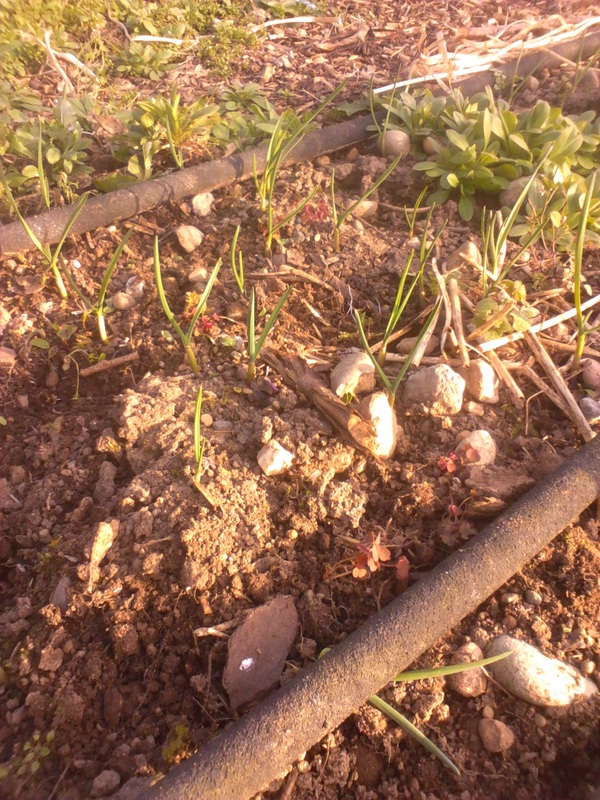
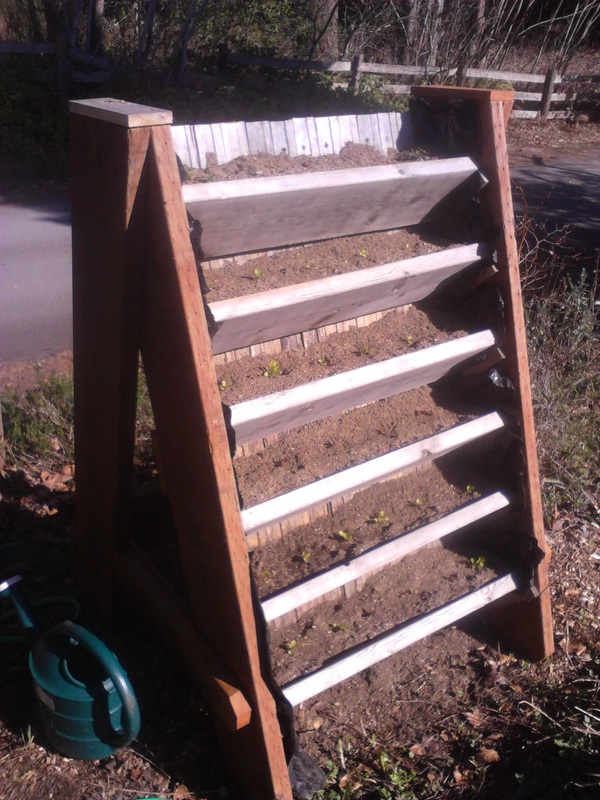
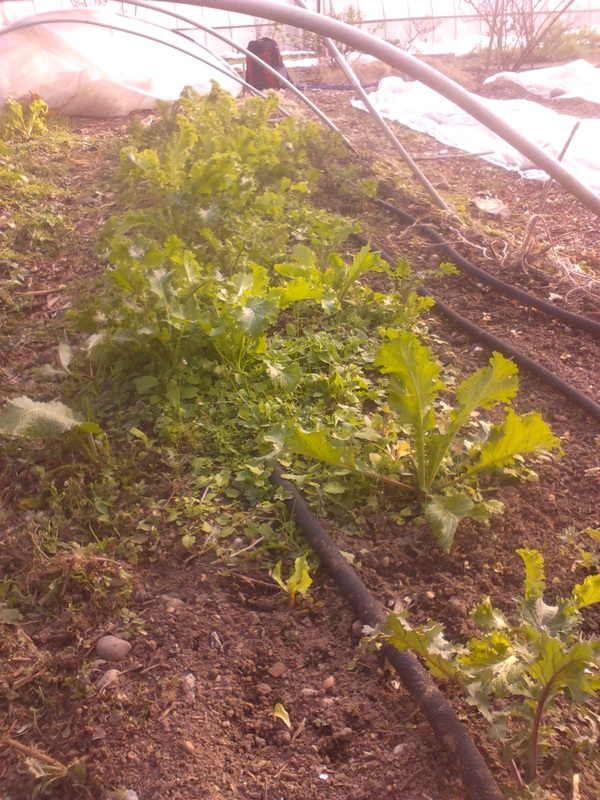
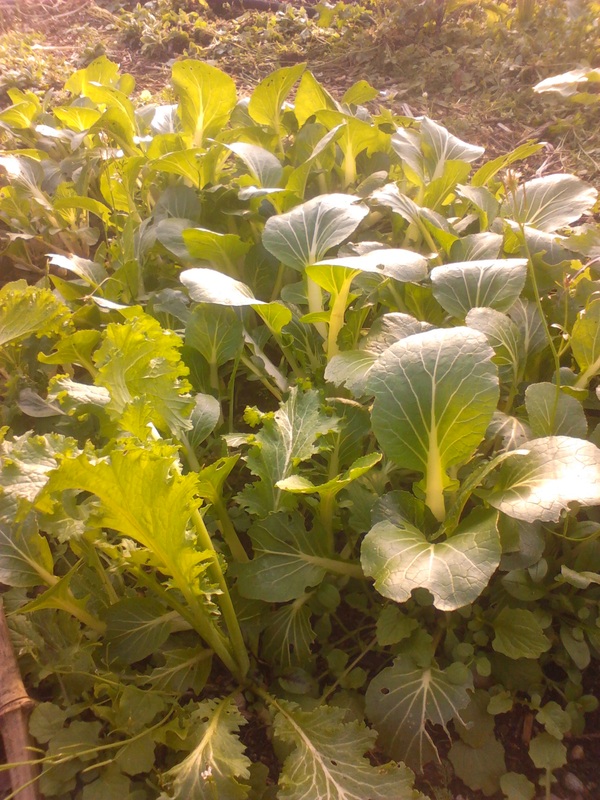
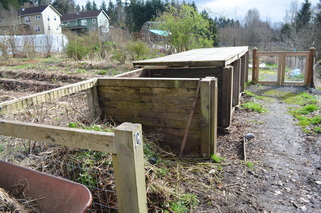
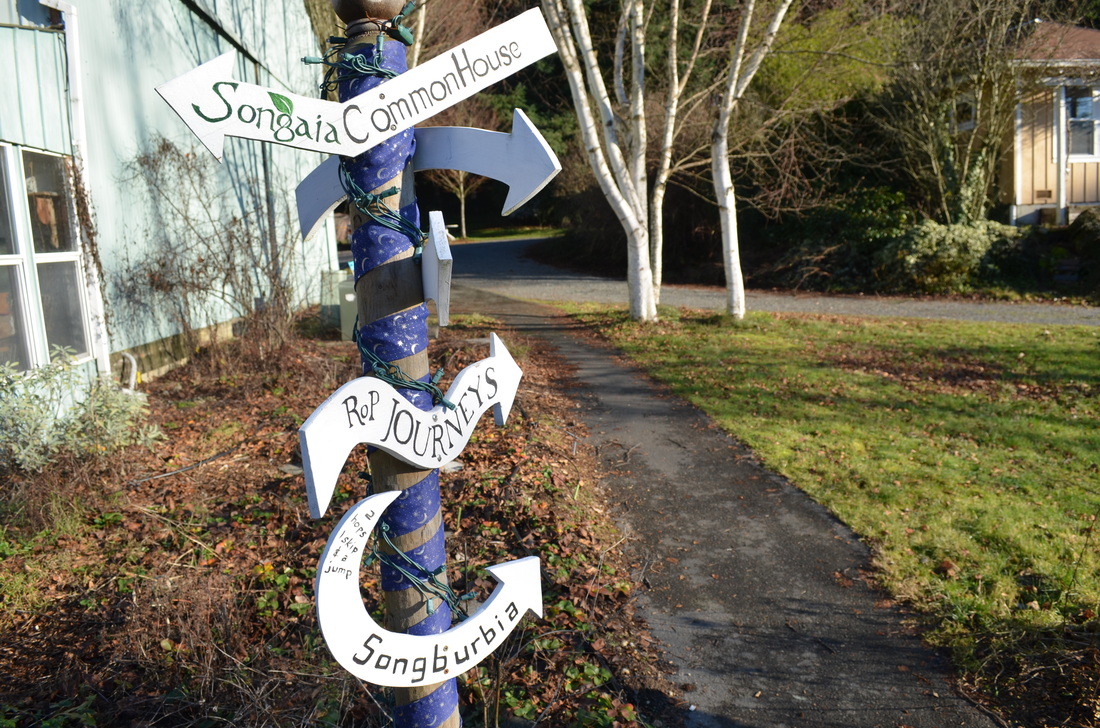
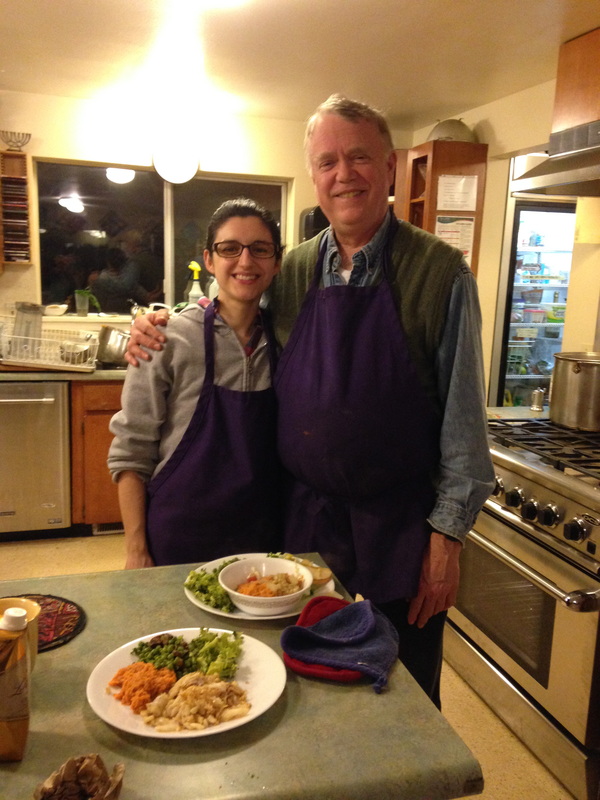
 RSS Feed
RSS Feed